Discount Supermarket War: The Latest Power Chart of the Four Best Allies of the Common Man in the Era of a Weak Yen and High Prices
O.K." with its famous inexpensive products, "Lopia" with its strong fresh foods, "Gyomu Super" which is expanding its power through M&A, and "Trial" which is the leader in the west.
A bowl of rice topped with a pork cutlet made with sumptuous sangen pork is only 322 yen. A piece of seafood pizza was only 133 yen. One day in late July, a FRIDAY reporter visited the supermarket “Okay” in Tokyo for the first time and was astonished at how inexpensive it was.
Amid a series of price hikes for foodstuffs due to the weak yen and high prices, “discount supermarkets,” which offer products at discount prices, have been growing remarkably.
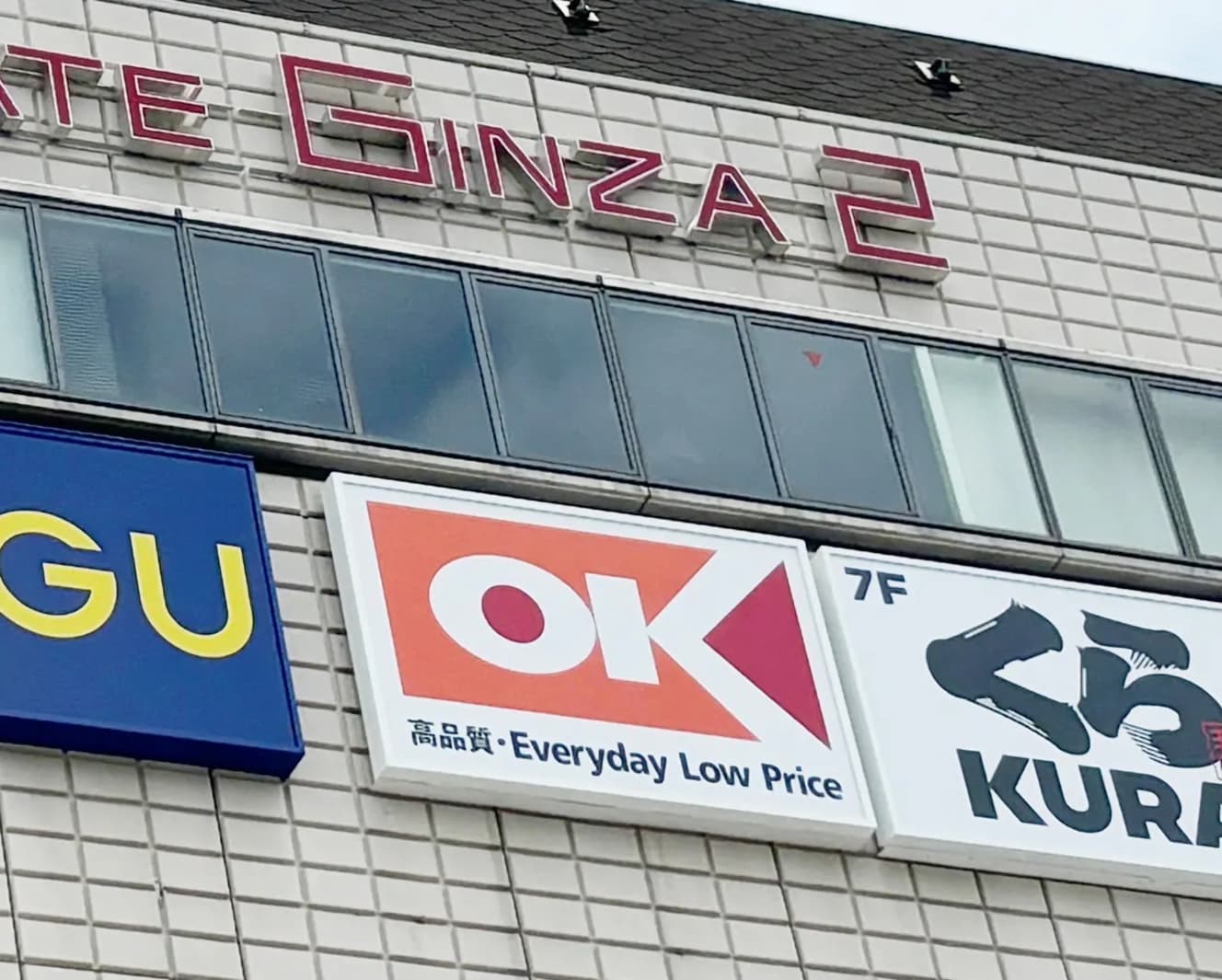
One of the reasons why discount supermarkets are gaining support is that private brand (PB) products, which used to be shunned as “fake,” have come to be regarded as “surprisingly good” thanks to the efforts of manufacturers. OKE’s sales in 2011 doubled from 2004,” said retail and distribution analyst Akihito Nakai.
The table below graphs the characteristics of the four major chains of discount supermarkets. Let us analyze the strengths of the four supermarket chains by referring to this chart.
The company that enjoys strong support for its ability to buy non-PB products at low prices is Okay (Kanagawa Prefecture), which boasts sales of more than 600 billion yen.
O.K. has expanded through a strategy of selling national brand (NB) products made by well-known manufacturers at lower prices than any other retailer. Especially for canned foods and alcoholic beverages, it is easy for consumers to compare prices with those of other stores. By being perceived as ‘NB is cheaper,’ more customers are buying fresh foods at Okay, which is boosting sales.
For example, Yamazaki’s high-end bread “Chohojun” is priced at 122 yen, nearly 100 yen cheaper than the market price. How is it possible to sell a product that everyone knows at such a low price? Distribution journalist Tadako Ishibashi confides, “Yamazaki’s products are sold for about 60% of the price of regular supermarkets.
One of the reasons is that we have reduced the number of products we sell to about 60% of those of a regular supermarket. We negotiate severely with manufacturers for each individual product, focusing on the best-selling items. We do not allow manufacturers to sell or negotiate with us for a set of their own second- or third-priced products. From the manufacturer’s point of view, this may be a “bad customer. However, there are many products whose single product sales are the highest in Japan because they are stocked in large quantities and actually sold in half the quantity. This is why we are able to achieve low purchase prices.”
No effort is spared in cutting fixed costs. Currently, most of O.K.’s street-side stores are owned by the company. When they open a new store, they purchase the land together with the store. The company does not have to pay rent to keep running costs down. Since OKE does not easily withdraw from the market and operates over a long span of time, it is cheaper than continuing to pay rent, according to the company.
In November, the company announced the opening of its first Kansai store in Higashiosaka City. Since OKE is a strong company with annual sales of approximately 4 billion yen per store, supermarkets in the Kansai region seem to be trembling with fear that they might lose their customers,” said Nakai.
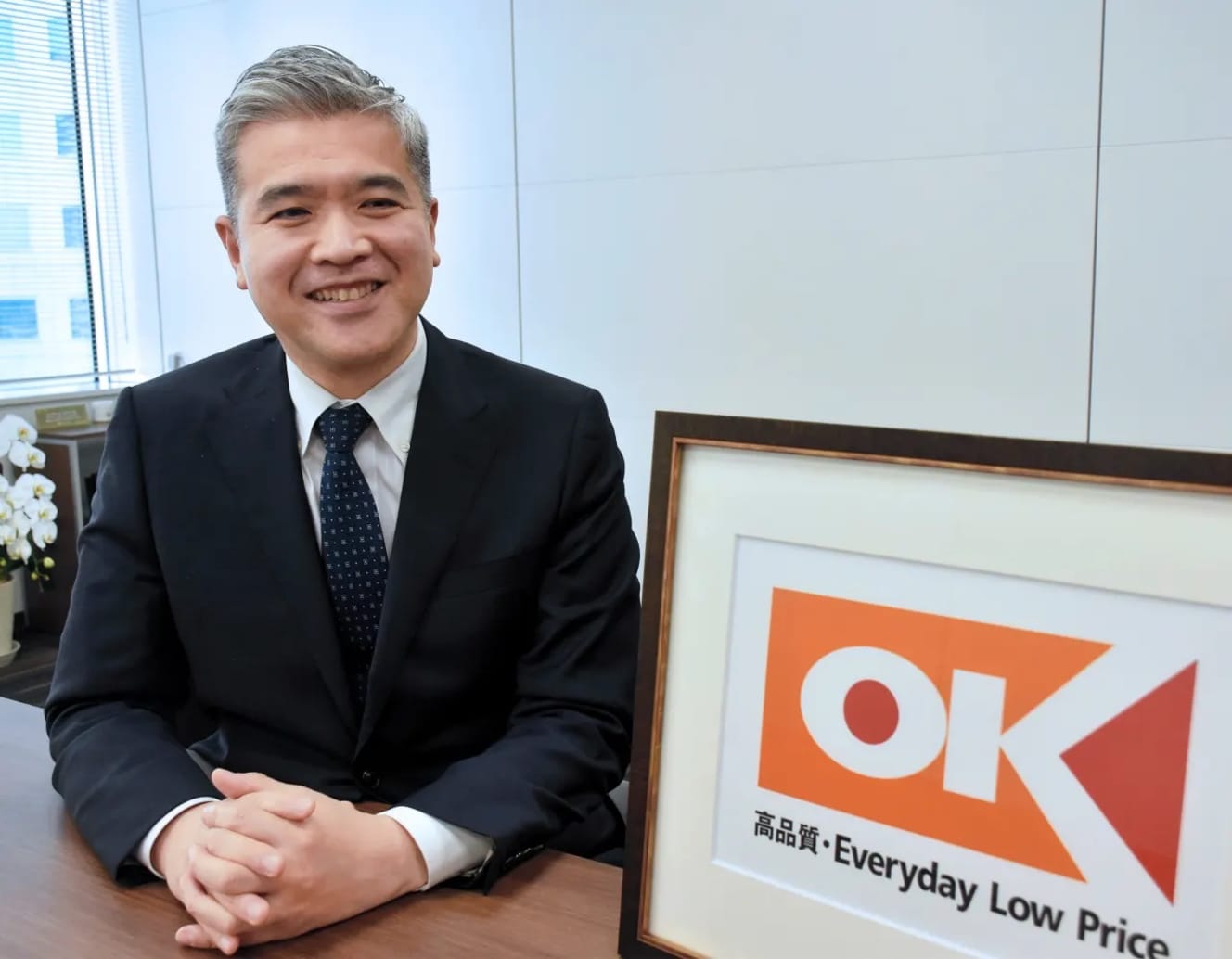
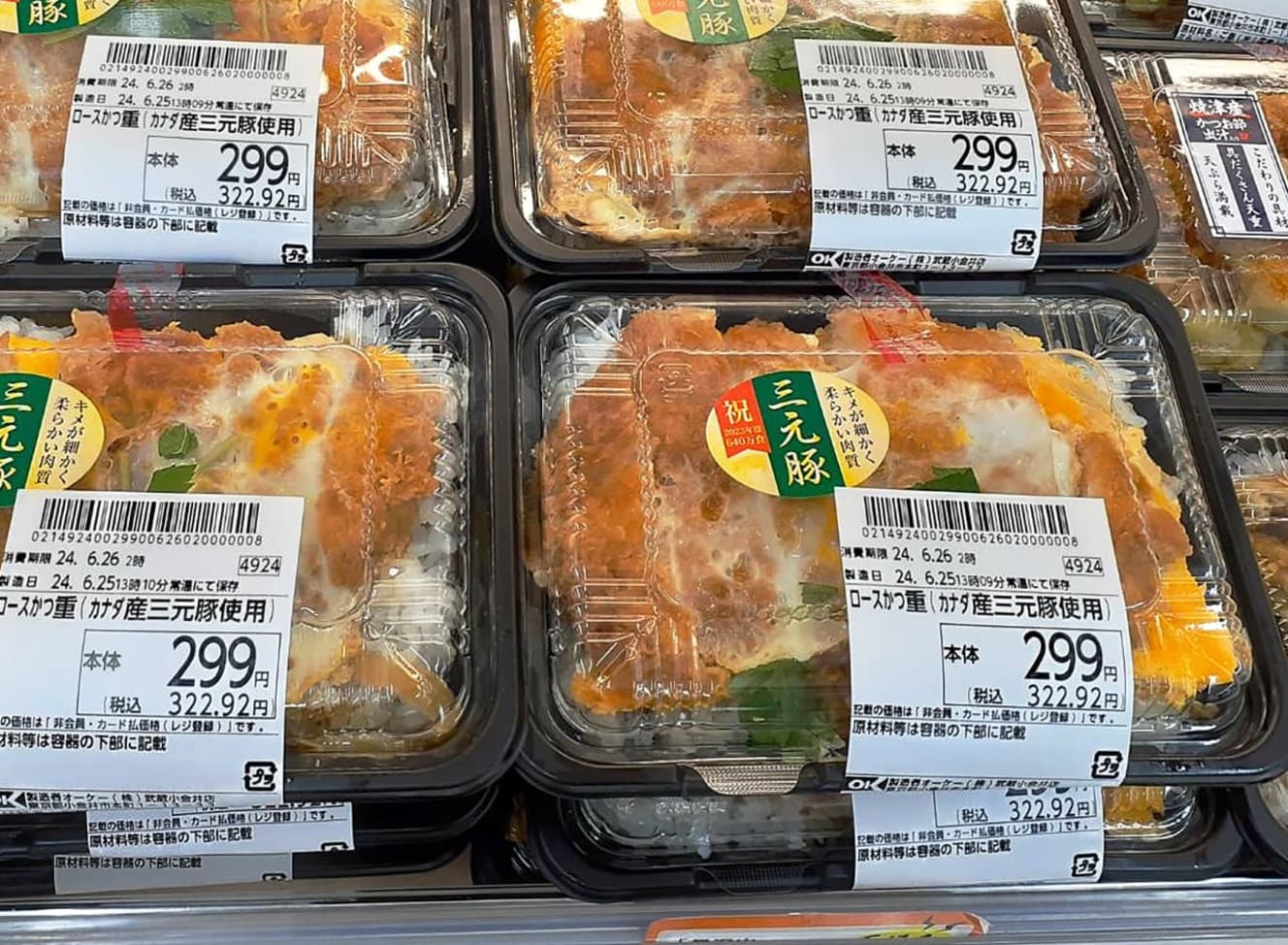
The company entered the Kansai region in 2008, before O.K. did. Ropia (Kanagawa Prefecture) has been expanding its presence in Hokkaido, Tohoku, and other regions. Mr. Ishibashi explains the characteristics of this store.
The origin of the company name is “Utopia of low prices. The company’s name comes from ‘Utopia, the low-priced Utopia,'” said Ishibashi. The company’s main strength is its volume products, with meat being offered in large packs and sashimi in sakku. This has the advantage of eliminating the need for packaging and processing. As the company aims to be the “Costco of Japan,” its strength lies in its “high-volume PB products.”
The PB lineup also includes pudding and other sweets as well as instant coffee, surprisingly broad in scope.
In these days of cashless shopping, Lopia’s cash-only payment strategy is unique to Lopia. Market Advisor Hideo Amano explains the strategy.
The reason is that when you introduce an electronic payment system, the store has to pay a commission. Based on the philosophy that “cash registers do not generate profit,” the number of cash registers has been reduced, and the sales floor has been widened instead.
It is not unusual to see long lines in front of the cash register in the evening on special sales days. However, the appeal of the surprising prices, such as 1,111 yen for a domestic melon and 2,200 yen for 2.5 kg of Japanese young chicken thighs, keeps the customers coming back.
While O.K. handles all purchasing and pricing at its head office, Lopia’s five department chiefs (meat, vegetables, fish, prepared foods, and processed foods), who are appointed to each store’s sales floor, have the authority to make decisions on purchasing and pricing. This allows us to make bold pricing decisions based on regional characteristics,” says Ishibashi.
On the other hand, the ratio of full-time staff is high, which is unusual for a supermarket, and the company spends a great deal of money on human resource development.
Ropia’s meat is basically purchased from a whole cow. We determine our prices based on the expected sales volume, with high profit margins on the parts that sell well, low prices on the parts that don’t sell well, and slap sales on the surplus parts. This strategy is only possible because we carefully train our employees to be meat experts.
The company is also active in mergers and acquisitions (M&A), and “Super Akidai,” which is well-known from live broadcasts on wide shows and news programs, is now under the umbrella of Lopia.
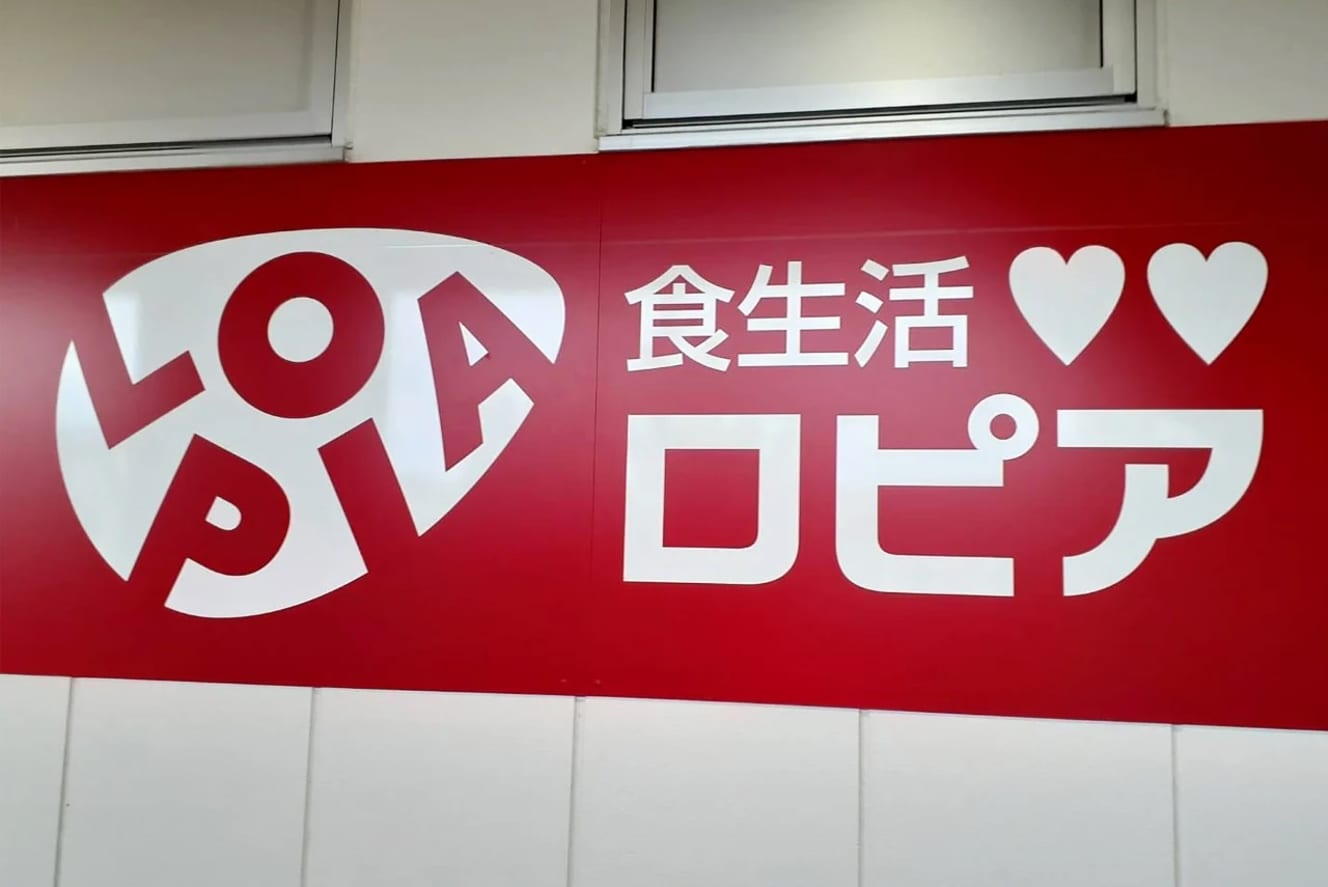
State-of-the-art technology provides a “boost
(Hyogo Prefecture) is also active in M&A, but it is unique in that it acquires food factories to produce private-brand products, rather than stores.
Kobe Bussan produces the PB products for “business supermarkets” at 25 of its own factories throughout Japan. When giant chains such as Aeon and Ito-Yokado enter the market, the small and medium-sized supermarkets that were originally located in the area lose out to competition. Then, the food factories that wholesale their products to them also suffer a downturn in business. Thus, business supermarkets are expanding their power by acquiring factories that have fallen into crisis. The store is not only a retail chain, but also a general food manufacturer,” says Amano.
The best-selling products are dressings in 1L containers and 500g frozen vegetables in large bags. While the popularity of the large volume products is the same as that of Ropia, the target customer base is somewhat different. Mr. Ishibashi, the aforementioned Mr. Ishibashi, reveals.
Lopia’s main products are fresh foods that are difficult to preserve, so they are popular among families with children who are growing up and large families. The supermarkets mainly sell frozen vegetables that are easy to store and have been pre-processed. They are very popular among elderly single-person households that want to avoid the hassle of washing, cutting, and boiling vegetables.
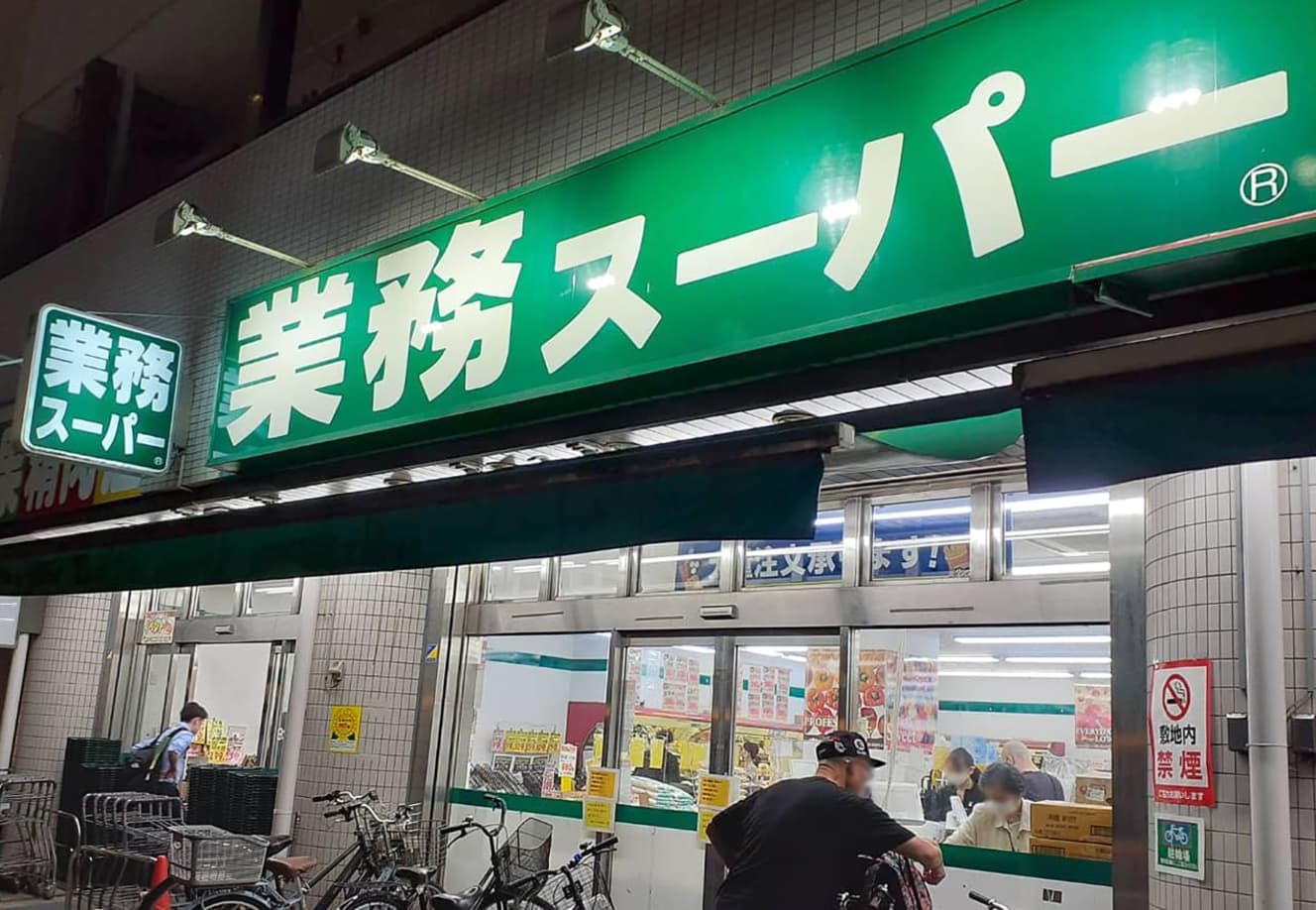
Although it has opened no stores in Tokyo, Trial, which originated in Fukuoka, is the reigning champion in western Japan. The company’s weapon is thorough digitalization,” says the aforementioned Amano.
At the “Smart Store,” a key store, AI cameras have been installed in the beverage and prepared food sections. Unlike POS data linked to the cash register, the cameras in the beverage department can obtain data on “products that customers put in their baskets but put back before accounting. This allows for more detailed sales floor allocation. Cameras in the prepared food section check the sales situation, and the AI determines the timing and price of price reductions. This information is automatically reflected in the “electronic price tag,” eliminating the need for store clerks to put price tag stickers on every single item. We hear that labor costs have been cut by 20% compared to before the use of AI. I believe that the opening of a Tokyo store is just around the corner.”
Recently, the quality of fresh foods has dramatically improved,” says Ishibashi. Mr. Ishibashi, mentioned above, says, “Trial is trying to cut costs.
Trial started processing many of its fresh foods at its centers early on to cut costs. This meant that some products were not as fresh as those processed at the stores, but recently we have been making efforts such as thorough temperature control and the use of vacuum packing, and we have been able to achieve freshness comparable to that of other stores.
The common thread that runs through the entire company is the spirit of “good products at the lowest possible price. The battle for supremacy over the “lowest price” to save the common man is intensifying nationwide.
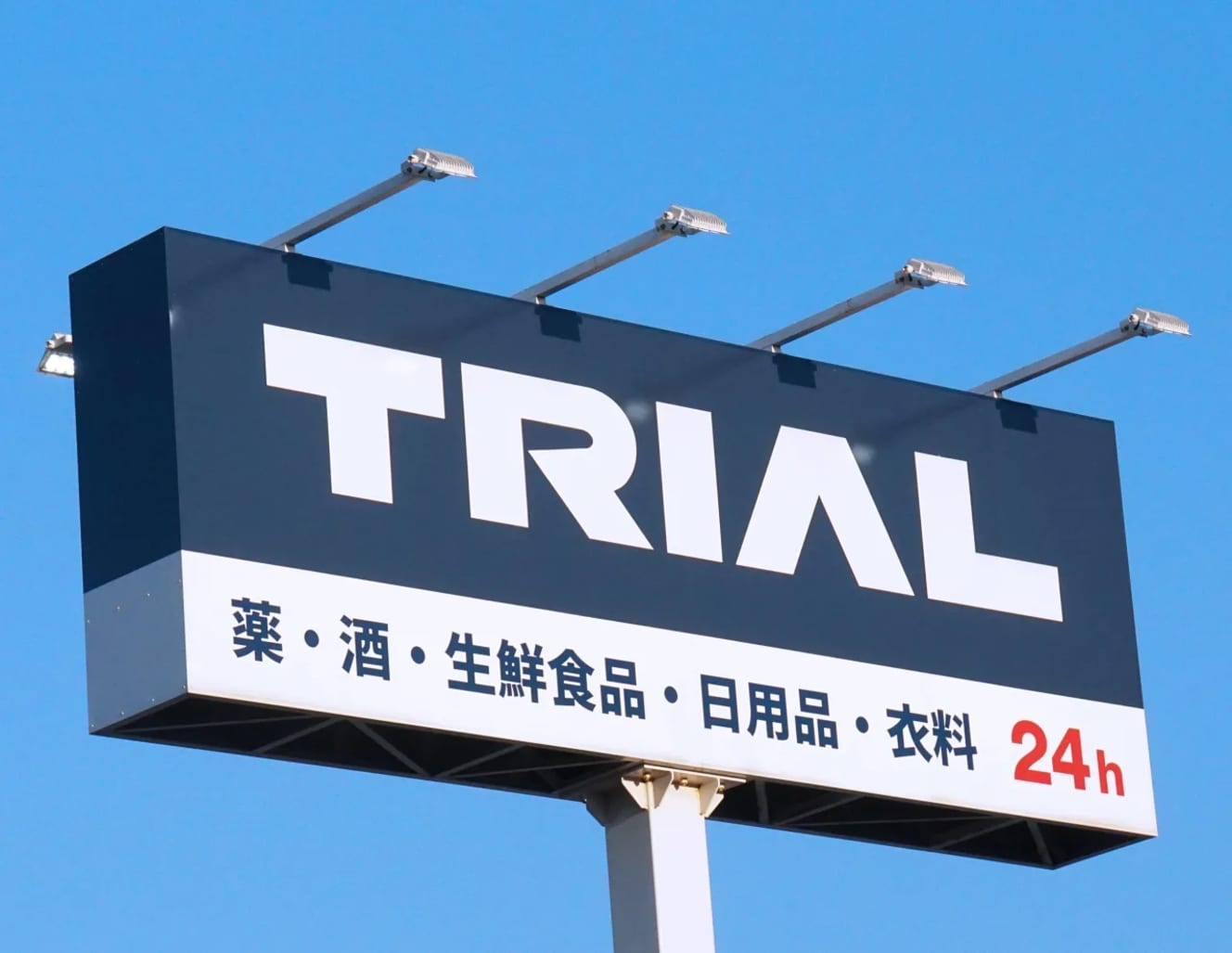
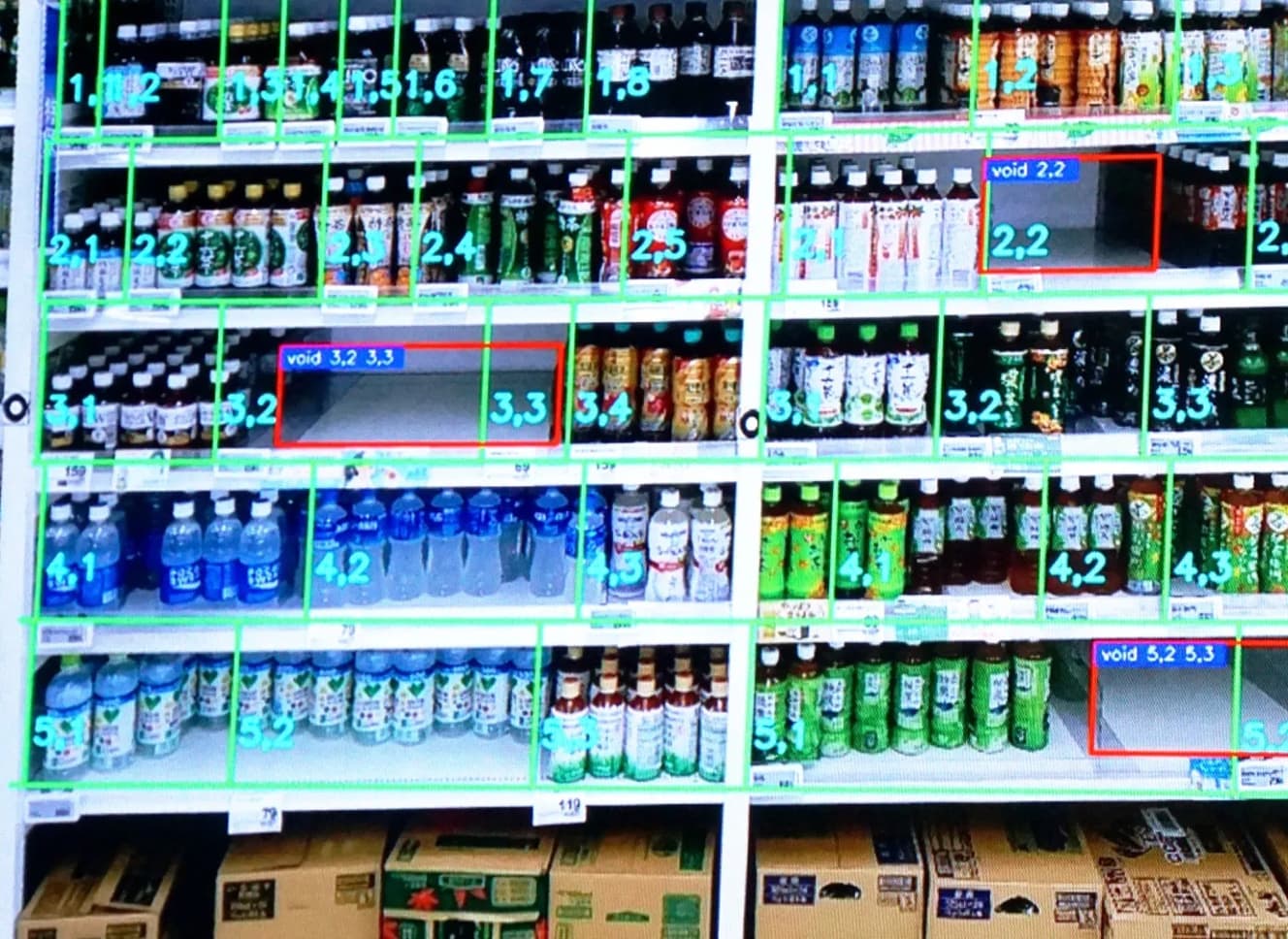
From the August 16 , 2024 issue of FRIDAY
PHOTO: Asahi Shimbun (2nd) Afro (6th, 7th)
